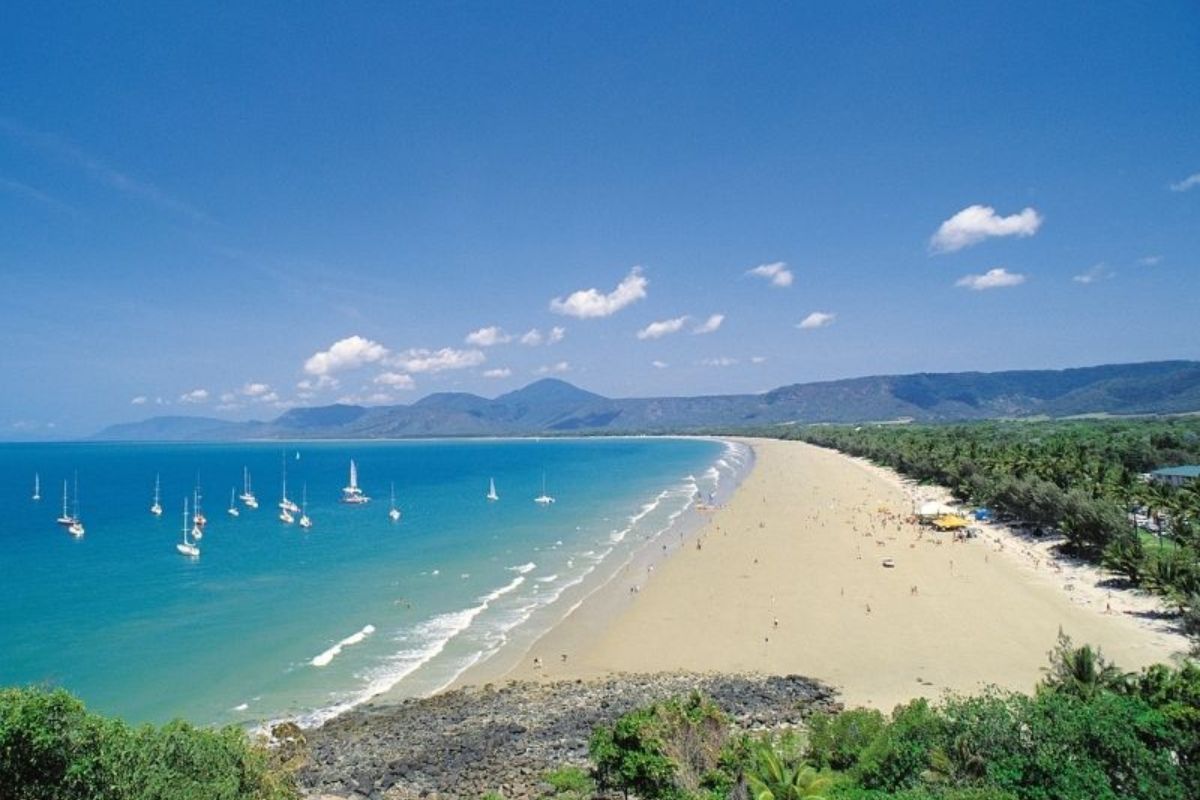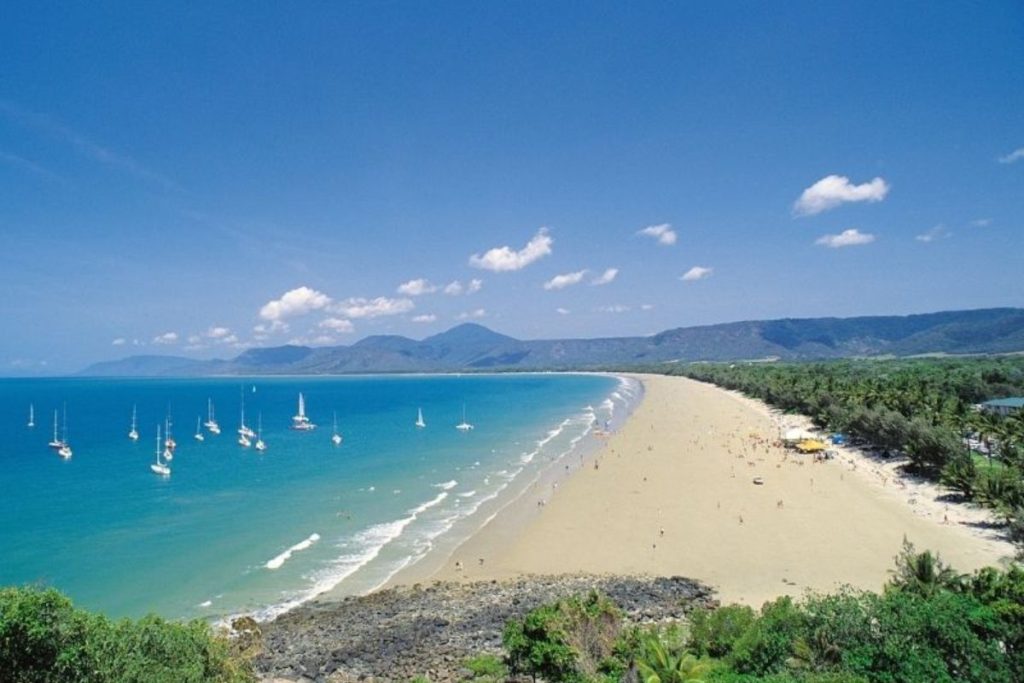This grant has expired.
This grant has expired and is no longer available. However, please contact Avant Group in case there are alternative grants available or to be informed if this grant will reopen.

QLD Building Bush Tourism Fund
- Applications are open until: 1 February 2024
- Grants: Eligible and approved projects and activities can access funding ranging from $50,000 to $200,000 (excluding GST). No matched funding is required.
The Building Bush Tourism (BBT) Fund is structured to provide financial assistance for the development of new and improved tourism-related infrastructure. It extends to improving the amenity and accessibility of social, community, and tourism infrastructure or experiences. The primary objective is to attract and increase both regional participation and visitors to the region.
Key Requirements
The BBT Fund operates as a competitive, merit-based program, providing funding exclusively to projects that align with the following evaluation criteria.
- Criteria 1: Support Bush Boost and Towards Tourism 2032 Outcomes
- The application must illustrate how the proposed project aligns with the Queensland Government’s $160 million Bush Boost and Towards Tourism 2032 outcomes. For instance, the project:
- creates new or enhanced tourism-related infrastructure or improves amenity/accessibility of social, community, and tourism infrastructure or experiences
- attracts both regional participation and visitors to the region
- elevates Queensland’s profile nationally and internationally
- increases visitation and overnight visitor expenditure
- is identified as a priority project in, or aligns with, the relevant regional destination tourism plan (additional information available at Tourism and Events Queensland) and/or the local government’s destination strategic plan
- receives support from the local government, Traditional Owners, and/or an industry body such as the Queensland Tourism Industry Council (QTIC).
- The application must illustrate how the proposed project aligns with the Queensland Government’s $160 million Bush Boost and Towards Tourism 2032 outcomes. For instance, the project:
- Criteria 2: Drive Demand and Tourism Growth
- The application must showcase the demand for the proposed infrastructure or community event/festival and its potential to drive tourism growth in the region.
- Criteria 3: Promote Economic Growth in the Destination
- The application must demonstrate that the proposed project will:
- create and support jobs in tourism and other supply chains (e.g., number of full-time equivalent positions during planning, construction, and operation)
- generate flow-on benefits for supply chains (e.g., accommodation, retail, hospitality, transport, etc.).
- The application must demonstrate that the proposed project will:
- Criteria 4: Commencement/Construction-Ready Project
- The application must affirm that the proposed project can commence/be construction-ready within six months of funding approval, with the following activities completed or substantially progressed as required. The demonstrated degree of risk, planning, and preparedness deemed acceptable includes:
- feasibility study/ies
- business plan (including project plan and risk/management plan)
- comprehensive plans (including sections and elevations for infrastructure projects within the context of an overall functional layout)
- architectural sketches and/or detailed design
- engineer design
- development and/or permit approvals and other relevant approvals
- environmental approvals
- compliance with cultural heritage duty of care
- owner’s consent
- The application must affirm that the proposed project can commence/be construction-ready within six months of funding approval, with the following activities completed or substantially progressed as required. The demonstrated degree of risk, planning, and preparedness deemed acceptable includes:
What is eligible for funding?
Projects eligible for consideration are those falling into the categories below, capable of creating new or enhanced tourism-related infrastructure, improving amenity and accessibility of social, community, and tourism infrastructure or experiences, with the goal of attracting and growing both regional participation and visitors to the region:
- local infrastructure for tourism attractions and city/town precincts, including (but not limited to) heritage railways/buildings, WWII bunkers/forts, accommodation, etc.
- cultural institutions (e.g., art galleries, museums)
- mixed-use facilities (e.g., community hubs and centres, tourism information centres)
- aquatic/sports/recreation centres and facilities
- entertainment facilities
- local infrastructure, including recreation and community water supply facilities supporting visitation growth (e.g., camping/visitor facilities/amenities/pontoons)
- local infrastructure supporting new/ongoing community festivals, arts and music events, and other community events with a strong focus on visitor attraction to the region (e.g., community showgrounds)
- development or enhancement of natural assets, including (but not limited to) public spaces such as beaches, parks (e.g., BBQ/picnic facilities, boardwalks, lookouts, shelters, interpretive signage), rail, and walking trails.
Additionally, where relevant, a project must:
- be situated on freehold or leasehold land and have owner’s consent for the project
- have in-principle support from local government and Traditional Owners (where required)
- be substantially progressed towards gaining, or having gained, all relevant Local, State, and Australian Government permits and approvals (including Development Approval where required)
- be substantially advanced towards Detailed Design for infrastructure projects
- be substantially advanced or in the final planning stages
- reach practical completion no later than 30 June 2026.
Eligible costs cover expenses directly related to project delivery, including but not limited to:
- tech overlay – online, digital, foreign language capability, virtual, and augmented reality capability enhancement of a destination, infrastructure product, or experience to provide a higher quality experience to domestic and international visitors
- costs related to offsite construction of tourism or festival/event-related infrastructure, including transportation costs to the project location
- capital construction costs (including site works required as part of construction)
- production of final ‘for construction’ designs or equivalent
- costs of construction-related labour (external contractors) directly related to developing and delivering the project
- project management costs (such as external contractors) for time directly related to managing the construction or festival/event of approved works but excluding executive duties and overhead charges
- vehicle leasing or hiring directly associated with the construction of the project (such as excavators).
What companies are eligible for funding?
To qualify for funding consideration, your organisation must meet the following criteria:
- maintain an established tourism-related operating base in Queensland
- have a valid Australian Business Number (ABN)
- be registered for Goods and Services Tax (GST).
- be situated outside South-East Queensland and within one of the designated Local Government Areas. These are: Aurukun Shire Council, Balonne Shire Council, Banana Shire Council, Barcaldine Regional Council, Barcoo Shire Council, Blackall-Tambo Regional Council, Boulia Shire Council, Bulloo Shire Council, Bundaberg Regional Council, Burdekin Shire Council, Burke Shire Council, Cairns Regional Council, Carpentaria Shire Council, Cassowary Coast Regional Council, Central Highlands Regional Council, Charters Towers Regional Council, Cherbourg Aboriginal Shire Council, Cloncurry Shire Council, Cook Shire Council, Croydon Shire Council, Diamantina Shire Council, Doomadgee Aboriginal Shire Council, Douglas Shire Council, Etheridge Shire Council, Flinders Shire Council, Fraser Coast Regional Council, Gladstone Regional Council, Goondiwindi Regional Council, Gympie Regional Council, Hinchinbrook Shire Council, Hope Vale Aboriginal Shire Council, Isaac Regional Council, Kowanyama Aboriginal Shire Council, Livingstone Shire Council, Lockhart River Aboriginal Shire Council, Longreach Regional Council, Mackay Regional Council, Mapoon Aboriginal Shire Council, Maranoa Regional Council, Mareeba Shire Council, McKinlay Shire Council, Mornington Shire Council, Mount Isa City Council, Murweh Shire Council, Napranum Aboriginal Shire Council, North Burnett Regional Council, Northern Peninsula Area Regional Council, Palm Island Aboriginal Shire Council, Paroo Shire Council, Pormpuraaw Aboriginal Shire Council, Quilpie Shire Council, Richmond Shire Council, Rockhampton Regional Council, South Burnett Regional Council, Southern Downs Regional Council, Tablelands Regional Council, Toowoomba Regional Council, Torres Shire Council, Torres Strait Island Regional Council, Townsville City Council, Weipa Town, Western Downs Regional Council, Whitsunday Regional Council, Winton Shire Council, Woorabinda Aboriginal Shire Council, Wujal Wujal Aboriginal Shire Council, Yarrabah Aboriginal Shire Council.
Moreover, your organisation must fall into one of the following categories:
- a local government authority
- a for-profit organisation with tourism as a primary objective
- a not-for-profit organisation with tourism as a key objective.
Is this grant competitive or entitlement based?
Competitive. Your application will be assessed among other applications by a judging panel.
How can I increase my chances of winning this grant?
By engaging an accredited government grants consultant, such as Avant Group.
Competitive grants often require significant business case development and project analysis to support the application, this may include detailed presentations supporting the project’s merit, projected sales, cost-benefit analysis and more.
As part of your engagement with Avant Group, your account manager will assess the required documents and will provide the following as needed to support your grant submission.
Grant application writeup including a detailed presentation illustrating how the grant funding will contribute to your project, how the funding will contribute to the project’s budget, a project milestone plan, delivery timeline, impact on employment if applicable and a breakdown of the management and leadership team for the project
- Industry analysis presentation
- Competitor Analysis Presentation
- Marketing and Sales Analysis Presentation
- 3-5 year Cashflow Forecast
- 3-5 year Balance Sheet Forecast
- Cost-Benefit Analysis of Grant Funding
- End-to-end grant application including information collating, analysis and application writing
- CAPEX (Capital Expenditure) cost-benefit analysis
- Stakeholder relations and Risk Mitigation Plans
- Any other relevant forecasting that will support your application
How can I get help with my application? Or know if I’m likely to win funding?
Avant Group offers a no-obligation assessment of your eligibility for funding and will assess your likelihood of a successful grant application.
